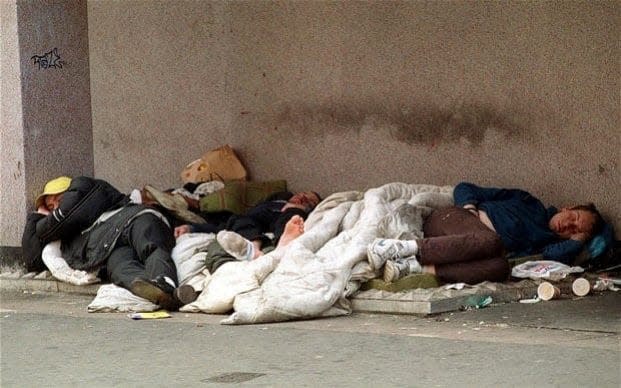Landlords accused of exploiting homeless people for sex using 'friends with benefits' adverts

Online housing adverts have been accused of targeting young, vulnerable homeless people for sexual exploitation.
The BBC has uncovered housing adverts on websites offering rooms to those without a home in return for sex.
The deals, which are legal, have been found on classified advertising sites.
One advertisement, seen by The Telegraph, appears to ask for a "mutual arrangement" in return for free accommodation.
It says: "Friends with benefits - Nice Room available. Are you female and looking for a free room? No rent, no bills, no deposit. Genuine offer."
Another advert says: "A room-share arrangement offered rent-free (in an expensive part of Central London) with myself, in exchange for a fully consensual, mutually enjoyable "friends with benefits" adult agreement with a mature (61 years) gentleman landlord (myself) and also for help with a few domestic duties.
"A very safe, relaxed and friendly living environment. Would suit a calm, stable, honest, trustworthy and open minded lady."
And another says: "I have both a spare room or room share available free of charge for an open minded naughty sexy girl starting immediately".
Charities have described these advertisements as exploitative and Hove MP Peter Kyle wants them made illegal.
One student told the BBC how she felt her only option was a "sex-for-rent" deal.
The woman said: "He took me into his living room, got me drinks, and then after that it was just straight upstairs and go for it."
And she continued: "He would do what he wanted to do, forcefully, and I just sort of went along with it - after the third time, I started feeling physically unwell."
Mel Potter, from woman Brighton Oasis Project, a women's charity, spoke to the BBC about the dangers. She said: "It's something that potentially can trap someone and put them at risk of violence and abuse."
Paul Noblet, from homeless charity Centrepoint, told the broadcaster that the websites hosting the advertisements could consider a voluntary code under which they could monitor and remove such adverts.
However, Peter Kyle MP said: "If they don't stand up to this and then accept their responsibility, I will be pushing for legislation to do it for them".

